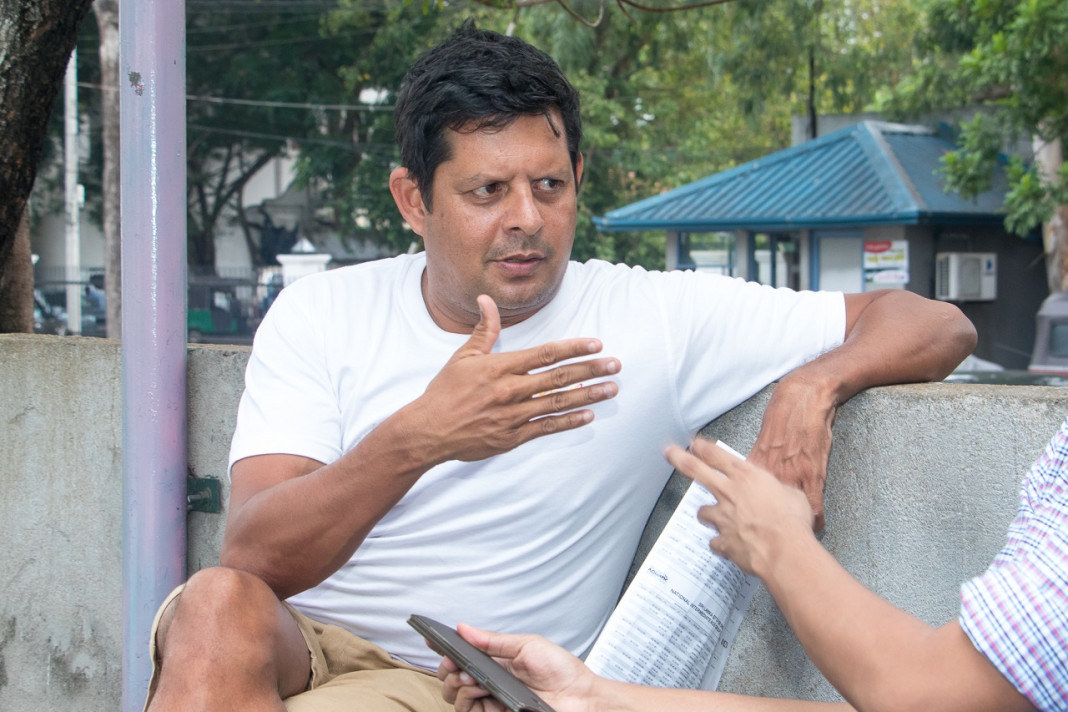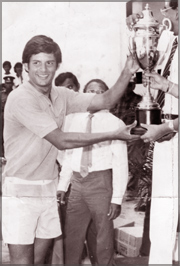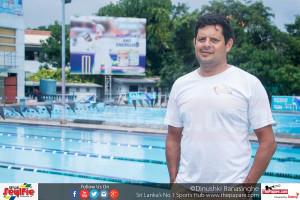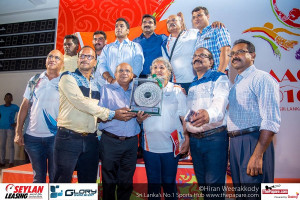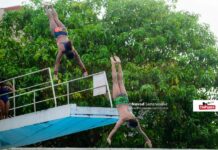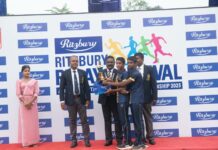The Sri Lankan swimming herald and the 15-time South Asian Games Gold medallist is an optimist. The former Olympian now turned coach believes that Sri Lanka has the right talent store but needs to look for an aftermath beyond a ‘tour based country who lay their focus on tours’ but look at a long term plan.
The household figure in the swimming arena, Julian Bolling was one time South Asia’s best swimmer rising to stardom in the 1991 South Asian Games winning as much six gold medals at that time. A three-time Olympian for the country and currently involved in the sport as a coach and administrator, he believes that Sri Lanka needs a long term plan focus beyond a single tour.
“Sri Lanka is a tour based country. We do enough to go on tour. There will be exceptions but as a country, we do Not do enough”
Stressing on the absence of Sri Lanka’s absence in a long-term structure in place, he believes that Sri Lanka needs to look at developing the sport for the long run.
“Athletes don’t know what’s in store for them. They have no incentive to work for”
Being an athlete and Olympian himself, he believes that athletes need to be given direction so that he or she will work towards achieving it.
“What we don’t do is set the timings. If the bodies tell the athletes ‘look here; Next target is the Asian Games. Here are the timings you’ll need to achieve”
At this point, the athlete will have two options. Either to work towards the target in the remaining few months or see their alternatives doing something else.
Julian argues that in this way Sri Lanka will have a motivated talent pool of players who would be competitive and not just satisfied to just be on the team.
“People (at present) do enough to stay in the team. They will be happy to be. To get the full out of them, the top has to be transparent.”
Qualification times in Swimming will up its standards
The Sri Lanka Aquatic Sports Union (SLASU) introduced a new standard that will be required by swimmers in order to qualify for the respective swimming meets. These qualification times will apply for the main meets such as the National Aquatic Championships and the Long Course Nationals.
“Qualifying times will make swimmers work hard to reach the standards”
A genuine appreciator of the efforts, the ex-Olympian believes that this will enable swimmers to train harder and thereby have a higher breed of swimmers competing.
Read: South Asian Aquatic Championship was a Boomer
During the 2016 South Asian Games, it was the Sri Lankan delegation that got the rest of the SAF countries together and in the onset of 6 months, the championship came alive at the Sugathadasa Complex.
“SAAC was a great start. Our players got exposure on an international standard and it was a learning curve.”
South Asian Aquatic Championship Hub
Regardless of the outcome in the medal tally, Julian argues that it provided the opportunity not only for the top tier swimmers but also the chance for the up and coming swimmers to work up the ranks.
With the South Asian Aquatic Championship reincarnated, the structure has been set to have at least one international event annually.
“Last year we had the SAAC, this year will the Asian Age Group Championship and the following year we will have the South Asian Age Groups”
“It’s up to the SLASU to create the vision. Thanks to the meet our juniors came up.”
“Sri Lanka needs to adopt sports as a lifestyle. That’s when we could break away from the system and focus ourselves on becoming professional”

